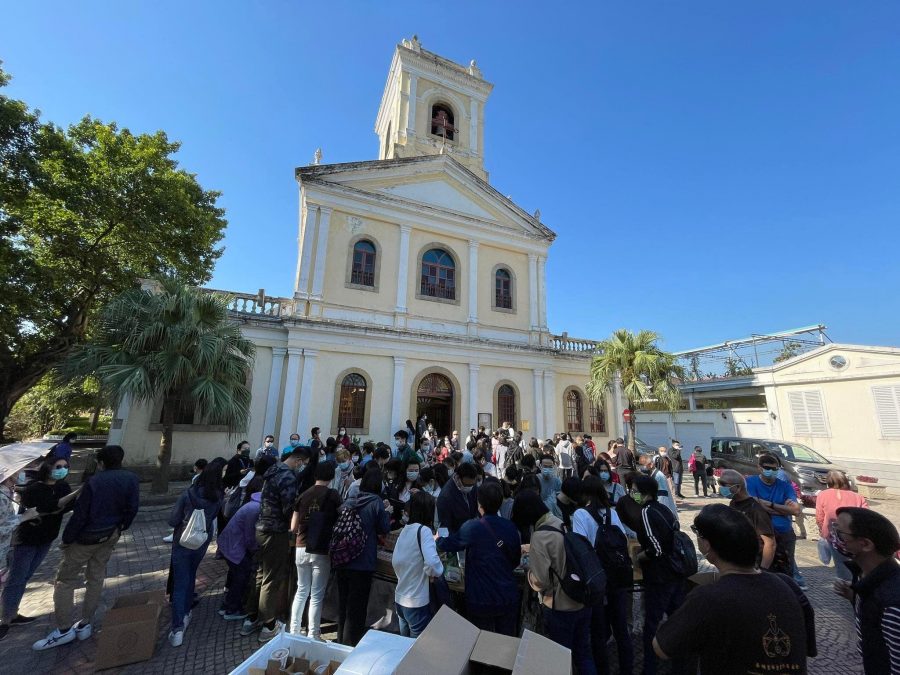Marco Carvalho
The group of extraordinary ministers of Holy Communion who serve the Portuguese-speaking Catholic community in the parish of Our Lady of Carmel will receive certificates with which the Diocese of Macau attests their positive contribution to the celebration of the Eucharist and officially recognizes the important designation they hold. The ceremony, which will take place on June 18th, is also a way of recognizing the importance of the service the extraordinary ministers of Holy Communion provide to God and to the community.
It’s a sort of an official recognition. Among the extraordinary ministers is Mrs. Miriam Baganha, for whom the ministry of distributing Communion, more than an opportunity to take part in the liturgical assembly, is a way of serving not only the Church and the community, but, first and foremost, the Eucharist and the word of God.
“It is very important that lay Catholics can participate and can be part of the community. It is also important that the community sees itself in them and that everyone can serve, obviously with the same dignity, the Church and, above all, the Eucharist and the Word of God,” Mrs. Baganha, who is a lawyer, tells O Clarim. She continues, saying, “The truth is that we all should answer the challenge that was launched by Pope Francis and help to transform the Church into a Church that listens, a Church that is close to the communities. Each within their own competences, we are all called to serve the community and to serve the Church.”
Her institution as a minister of Holy Communion, Mrs. Baganha claims, inevitably not only entails a greater responsibility, but also a more intense sense of commitment. Apart from being an extraordinary minister of Communion, Mrs. Baganha is also a minister of the word of God. A reinforced involvement in parish and community life is, however, natural for those who seek to make a daily companion of the Bible and the sacred texts.
Mrs. Baganha says, “The challenge, I would say, is a challenge of participation. It is a kind of culmination of our commitment, through a more intense allegiance and a greater donation. I would say it reveals a willingness to strengthen a commitment, to recognize that we are one with Christ and that Christ is in all of us. But this is a challenge that was born from the community, which is a very lively community, very participatory. And being so, an individual and very natural response emerges.”
“The Holy Bible is the word of God, and it is a daily companion, although sometimes not as much as would be desired. Today, thanks to the new technologies, we have these apps that allow us to pray in a very accessible way. There are several of these applications. For instance, I use one that is called Daily Gospel, which sends us Gospel passages to read and reflect upon every day,” Mrs. Baganha says.
In January 2021, Pope Francis changed the Code of Canon Law and made institutional what was already happening in practice: the access of laywomen to domains such as the ministry of Holy Communion and the ministry of the word of God. The change, the lawyer claims, brings dignity to the work that women carry out within the Church. “Now, officially at least– although it was already a common, more practical practice before – we have a document from Pope Francis that says that women should also be invested with this ministry. But the importance doesn’t arise merely from the fact that this ministry has been granted to women. For me, it’s because it’s something that it is obviously lay-oriented,” Mrs. Baganha says.


 Follow
Follow


